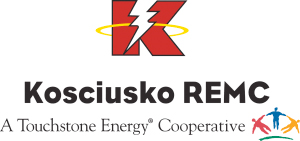TIMES UNION REPORTS – Kosciusko County Commissioners on Tuesday approved an ordinance establishing unincorporated areas in the county as Infrastructure Development Zones to increase the availability of broadband internet service.
The ordinance also will provide a property tax exemption to Kosciusko REMC for investing in the installation of broadband internet equipment that will “provide opportunities for increased broadband internet service and economic development benefits to the rural areas of Kosciusko County,” according to a copy of the ordinance provided by attorney Steve Snyder, representing KREMC.
“This is a unique application that is being made by REMC. By virtue of state statute that was enacted roughly 3, 3-1/2 years ago, to assist entities that are willing to expand broadband internet service in rural areas,” Snyder told the Commissioners.
“The state has given the authority to entities that want to make the investment in broadband in rural areas – the incentive being to not being required to pay personal property tax on the investment they made,” he said.
Snyder said everyone has heard from Indiana Gov. Eric Holcomb and many of the state legislators that one of the biggest issues in our area and in all of rural Indiana is the lack of broadband internet.
“That came home to roost during the pandemic and schools were going virtual and the connections that were in the rural areas were simply inadequate to survive contact that was needed to download or stream that educational information,” Snyder said.
Before the pandemic, legislators recognized the need for broadband internet service and they said they needed to encourage entities to provide it, but also recognized it would be a major expense and time consuming, he said.
REMC looked at it from the standpoint that they had a portion of the infrastructure that would be required already in place.
The main statutory provisions, Snyder pointed out, could be found under Indiana Code 6-1.1-12.5-1.
“It says, ‘This chapter applies to facilities and technology used in the deployment and transmission of broadband service, however defined or classified by the FCC.’ Well, that’s what we have here: fiber optic broadband service in rural areas,” he said.
The next section says a county executive, municipal legislative body may adopt an ordinance designating a geographic territory as an infrastructure development zone. A public hearing on the proposed ordinance has to be conducted – which was done at the Commissioners meeting with no remonstrators. Notice of the public hearing was published in the Times-Union.
A third requirement was that the county had to make a finding that adequate eligible infrastructure is not available in the zone. Secondly, the county had to find that “providing a property tax exemption to a person for investing in eligible infrastructure in the zone will provide opportunities for increased natural gas usage, increased availability of broadband service, advanced services and public water or wastewater service; and economic development benefits.”
Snyder said there aren’t many businesses out there that can provide without high-speed internet today. Schools will, in his opinion, continue to have a need for broadband internet in rural areas.
The final section of the Indiana Code that Snyder pointed out states that, “If an infrastructure development zone is established … eligible infrastructure located in the zone is exempt from property taxation.”
Snyder said, “That’s what we’re looking for as an incentive to invest in and establish broadband internet in rural areas of the county.”
While putting the ordinance together, he said he discussed with County Auditor Michelle Puckett how to describe the infrastructure development zone. They came up with just describing the zone as the “unincorporated areas of Kosciusko County,” which will encompass KREMC’s area and will allow the ordinance to be as effective as they could make it. “So that wherever REMC would establish broadband internet, it would be in the infrastructure development zone,” Snyder said.
He said Kosciusko County has a need for more and better broadband internet service and “this is an opportunity to have private investment come in, supply the need adequately and receive the benefits that the legislature said should be given to those entities that do such in order to encourage it even more.”
Commissioner Bob Conley asked if a community serviced by NIPSCO could also be provided with broadband internet by REMC. Snyder said it doesn’t matter if a community is serviced by NIPSCO or KREMC, they just have to be in an unincorporated area. As an example, he said the city of Warsaw wouldn’t be covered under the ordinance because it is in an incorporated area.
Commissioner Brad Jackson asked if there was an exemption for property tax, too, or if it was just the personal property tax. Snyder said it was just personal property.
Commissioner Cary Groninger asked, “So would this be for any provider in that area or is this specific to REMC?” Snyder said it would be for any provider of broadband internet service in an unincorporated area. The ordinance only applies to broadband internet for Kosciusko County because the ordinance limited it to that.
Puckett said she researched and talked to a few other counties that have done this. “This is setting up a zone so an exemption is put into place, so there will be no assessments, there will be no taxes ever due on those. It will be covered under this ordinance,” she said.
The Indiana Code is a relatively new one and not a lot of counties have adopted it yet, Puckett stated, noting she talked to three different ones. The legal description to include all “unincorporated areas” is very similar to what the other counties have done, she said.
Groninger said broadband is definitely a top priority for Kosciusko County as far as getting it available throughout the county.
“We’re working with (Kosciusko Economic Development Corporation) on being able to become a broadband-ready community, and I think this is just another one of the steps to incentivize investment. And I really appreciate REMC stepping forward. I know this is a huge investment, huge undertaking for them to step forward to take this project on,” he said, making the motion to approve the ordinance.
With no comments from the public, the motion was passed unanimously.





